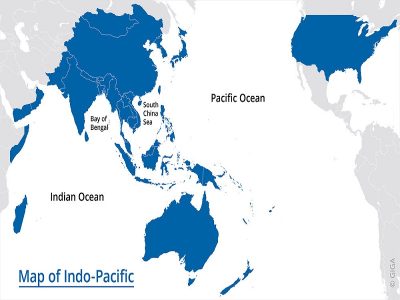Why Did Russia’s Foreign Minister Lavrov Use the Term “Indo-Pacific” Instead of the Usual “Asia-Pacific”?

All Global Research articles can be read in 51 languages by activating the “Translate Website” drop down menu on the top banner of our home page (Desktop version).
To receive Global Research’s Daily Newsletter (selected articles), click here.
Visit and follow us on Instagram, Twitter and Facebook. Feel free to repost and share widely Global Research articles.
***
Knowing how professional this world-class diplomat is and how he never has a slip of the tongue since he always puts a lot of thought into every word that he says, this development should be interpreted as a subtle change in policy. It’s not in any way whatsoever aimed at sending some kind of negative signal to China, but to the contrary, it’s meant to show that Russia is flexibly adapting to regional trends.
Russian Foreign Minister Lavrov’s press conference that followed his participation in the CSTO Council of Foreign Ministers meeting last week was remarkable in the sense that he used the term “Indo-Pacific” for the first time ever when describing what his country hitherto always called the “Asia-Pacific”. The specific instance in which he employed it was when he said that “The principle of the indivisibility of security obviously applies to the Indo-Pacific Region today.” Up until this point, Russian representatives always used the term “Asia-Pacific”, which aligns with what their comprehensive strategic partners in China always say. This time, however, Lavrov opted for the more popular regional term instead.
Knowing how professional this world-class diplomat is and how he never has a slip of the tongue since he always puts a lot of thought into every word that he says, this development should be interpreted as a subtle change in policy. It’s not in any way whatsoever aimed at sending some kind of negative signal to China, but to the contrary, it’s meant to show that Russia is flexibly adapting to regional trends. Every single country in this part of the world with the notable exception of China and perhaps also North Korea describes their region as the Indo-Pacific nowadays. This term used to be considered a subtle nod to American grand strategic designs but is now simply an accurate geostrategic description.
The rise of India as a globally influential Great Power following its decisive intervention after the start of Russia’s ongoing special military operation in Ukraine to preemptively avert its partner’s potentially disproportionate dependence on China in response to the US-led West’s unprecedented sanctions against it completely changed the trajectory of the New Cold War. This South Asian civilization-state is now a force to be reckoned with across the world after surprising literally every observer by what it just did. It’s therefore reasonable to pay a nod towards its newfound global importance by finally describing the wider region as the “Indo-Pacific”, especially since almost everyone else is nowadays too.
Building upon that observation, it’s in Russia’s grand strategic interests to signal to others in this part of the world that it’s indeed strategically autonomous from China and hasn’t become its “junior partner” like some in the US-led Western Mainstream Media have falsely claimed since the start of its special operation in Ukraine. Countries like Vietnam for instance should be reassured that Russia isn’t going to take China’s side over theirs in disputes over the South China Sea but would instead remain neutral and aspire to help them balance between the American and Chinese superpowers that currently dominate the bi-multipolar intermediary phase of the global systemic transition to more complex multipolarity.
With these motivations in mind, it makes sense why Lavrov finally used the term “Indo-Pacific” instead of “Asia-Pacific”, though it’s unclear whether he’ll continue to do so or if this was just an acknowledgement of the need for Russia to pay attention to this regional trend at least once. In any case, it certainly wasn’t a slip of the tongue since Lavrov never has any of those but was instead a deliberate signal sent to all those countries that use this term instead of the one that China, Russia, and perhaps also North Korea always use. Even though none of them formally reacted to this, there’s no doubt that they noticed it and would have appreciated what Lavrov just did, especially India.
*
Note to readers: Please click the share buttons above or below. Follow us on Instagram, Twitter and Facebook. Feel free to repost and share widely Global Research articles.
This article was originally published on OneWorld.

